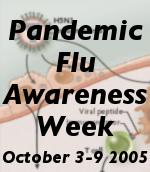=====================
October 2, 1918
Smallest story (of 12) on the front page:
Spanish Influenza Sweeps Gantonments(sic)
...continues to spread in army camps ... over 14,000 new cases in 24 hours ... increase over yesterday's 3666 cases
------------
Films:
The Great Nazimova is at the Strand tomorrow, in Toys of Fate.
The latest Salisbury film, The Eagle (a superb Western drama), plays at the Auditorium [theater] tonight.
------------
(advertisement)
Mothers - give candy Cascarets to work the nasty bile, souring food and constipation poison from the little liver and bowels
------------
Local war news:
Registrants (#1331-1544) include Harold William Paynter, George Thomas Wasley, Arthur Burling Foote, Fred Orzalli
Theodore H. Tobiasson is among those called up for examination on Oct. 7
Raemah Arbogast and William Englebright are headed for Fort McDowell.
------------
Nationalism First
... The man who puts internationalism above nationalism is as much to be suspected as the man who puts promiscuous affection for his neighbors above devotion to his own family. ...
------------
The Case of Eugene Debs
(reprinted from the Kansas City Star)
The honest man who is hopelessly wrong may be an even greater menace to society than the consciousless crook. Debs is a man who lives by formula - a dangerous principle to follow.
It is this inability to make distinctions... that distinguishes the fanatic from the real reformer.
=====================
October 2, 2005

Helen Branswell interviews Dr. David Nabarro of WHO, whose "150 million dead" estimate (*) was followed by yesterday's frantic WHO backtracking:
...
The official WHO estimate (of 2 to 7.4 million deaths) was calculated using a mathematical model based largely on the Hong Kong flu of 1968, the mildest pandemic of the last century.
"It would really disturb many, many systems and our capacity to cope in many countries would not be that great," he says, predicting food supplies in the developed world - where diets are comprised almost exclusively of purchased (not home-grown) food - "would be particularly badly hit."
A leading advocate for pandemic preparedness, Dr. Michael Osterholm, has warned a pandemic would have a substantial and highly disruptive impact on the production and movement of goods, leading to shortages of many products critical to daily life.
The official WHO estimate (of 2 to 7.4 million deaths) was calculated using a mathematical model based largely on the Hong Kong flu of 1968, the mildest pandemic of the last century.
"It would really disturb many, many systems and our capacity to cope in many countries would not be that great," he says, predicting food supplies in the developed world - where diets are comprised almost exclusively of purchased (not home-grown) food - "would be particularly badly hit."
A leading advocate for pandemic preparedness, Dr. Michael Osterholm, has warned a pandemic would have a substantial and highly disruptive impact on the production and movement of goods, leading to shortages of many products critical to daily life.






No comments:
Post a Comment